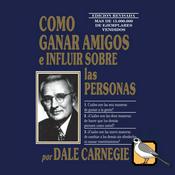1061 episodios

William Wordsworth's "Character of the Happy Warrior"
14/1/2026 | 5 min
“Who is the happy Warrior? Who is he/That every man in arms should wish to be?” In today’s poem, Wordsworth asks unfamiliar questions. Happy reading. This is a public episode. If you'd like to discuss this with other subscribers or get access to bonus episodes, visit dailypoempod.substack.com/subscribe

William Blake's "The Ecchoing Green"
13/1/2026 | 4 min
Today’s poem is a snapshot of a lost world. Happy reading. This is a public episode. If you'd like to discuss this with other subscribers or get access to bonus episodes, visit dailypoempod.substack.com/subscribe

Alfred Noyes' "Daddy Fell Into the Pond"
09/1/2026 | 2 min
Today’s poem reminds us of a father’s value. Happy reading. This is a public episode. If you'd like to discuss this with other subscribers or get access to bonus episodes, visit dailypoempod.substack.com/subscribe

Paul J. Pastor's "The Oracle"
07/1/2026 | 5 min
Today’s poem offers a new year’s resolution worth keeping. Happy reading. This is a public episode. If you'd like to discuss this with other subscribers or get access to bonus episodes, visit dailypoempod.substack.com/subscribe

Philip Appleman’s “To the Garbage Collectors in Bloomington, Indiana, the First Pickup of the New Year”
05/1/2026 | 4 min
It’s that time of (new) year again. Happy reading. This is a public episode. If you'd like to discuss this with other subscribers or get access to bonus episodes, visit dailypoempod.substack.com/subscribe
Más podcasts de Arte
Podcasts a la moda de Arte
Acerca de The Daily Poem
Escucha The Daily Poem, El Arte de la Guerra de Sun Tzu y muchos más podcasts de todo el mundo con la aplicación de radio.net

Descarga la app gratuita: radio.net
- Añadir radios y podcasts a favoritos
- Transmisión por Wi-Fi y Bluetooth
- Carplay & Android Auto compatible
- Muchas otras funciones de la app
Descarga la app gratuita: radio.net
- Añadir radios y podcasts a favoritos
- Transmisión por Wi-Fi y Bluetooth
- Carplay & Android Auto compatible
- Muchas otras funciones de la app


The Daily Poem
Descarga la app,
Escucha.





























